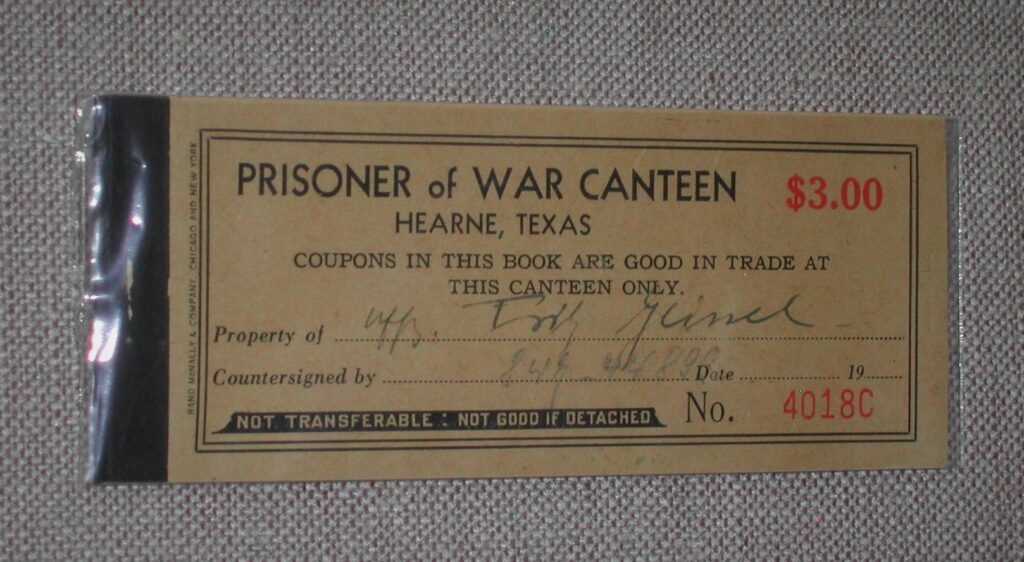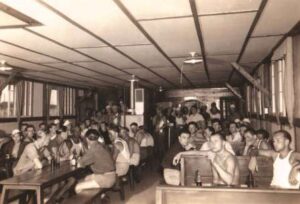
Scrip is a form of currency that was often used by the US Army in the past. It was essentially a substitute for regular currency, and was used primarily in situations where traditional forms of payment were not available or feasible.
Obviously, giving German prisoners US dollars would not be a good idea. So, the War Department issued each enlisted man or NCO $3.00 in Camp scrip in 1-cent and 5-cent coupons allotments each month. Since the Geneva Convention required equal treatment between U.S. and enemy soldiers, each prisoner compound included common buildings to house their infirmary, canteen/post exchange and administrative offices. This provided the “company store” where prisoners purchased items from their post-exchange that you might find in a hotel gift shop today. Various brands of personal hygiene items, writing supplies, tobacco, candies, etc. were routinely stocked. Prisoners could even buy postcards with pictures of the Camp activities to send home.
A favorite item of the POW canteen was a pint beer. Unfortunately for them, the War Department limited each prisoner to only one pint per day. As any resourceful man will tell you when it comes to beer, “Where there is a will, there is a way.” Groups would pool their coupons to allow one in the group a sufficient number of pints to get an occasional good buzz.

Although NCOs were not required to work except to supervise, enlisted prisoners might be ordered to work doing general house-keeping or maintenance chores around the camp for $.80 (80-cents) per day. Some worked in their own barber shops, kitchens, infirmaries, post office or clerical offices to earn a few “cents.” Others might join crews to work chopping or picking crops for neighboring farms. A few even worked in one of the downtown cafes.
Earned tallies would be recorded by Camp bookkeepers and the equivalent scrip coupons issued to each prisoner accordingly. The more coupons earned, the more services and goodies they could purchase.
Read more about Camp Hearne’s POW canteen, post-exchange and utilization of labor in Michael Waters book, Lone Star Stalag: German Prisoners of War at Camp Hearne.
